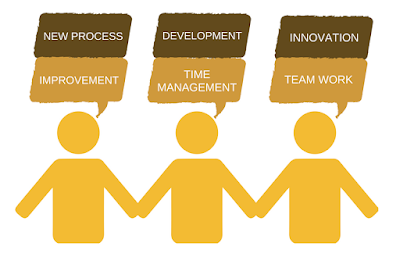By creating and sharing content, your employees can add value to your marketing. They can be the voice of your company and, help you to increase your company's visibility and your brand awareness. Unfortunately, in many companies, employees are still underused as a marketing force.
Here, six ideas to encourage your employees to share your content:
1. The first step to increasing your employees’ participation is to share information with them. I know it sounds very obvious but, sometimes, communication can be underestimated in some companies. If your employees don't know what is going on, they cannot help you to spread the news. Make them know what is happening and, encourage them to create and share their own stories.
2. Stop random marketing and create a clear marketing strategy. After this is created, you have to share it with your employees. No excuses! Knowing about your company's future plans and direction will help them to make decisions on what kind of content they can create and share.
3. Create good quality content that at the same time is easy to share. It is important that they feel proud of the content they are sharing. A well-written and visually appealing material has more chances to be shared than a poor one.
 |
| Give your employees the chance to create and share their own content |
4. Educate your employees to become your brand ambassadors. If fact, you should train them even before they start to use the social media channels. Communication and social media training will help your employees to feel comfortable when creating and sharing content. You might train them, for example, on how to use the channels as well as on how to follow the company’s social media guidelines. As soon as the content start to be shared by them, it will be useful to share best practices among your employees. Make sure your employees are spending time on the right social media channels, based on your company strategies and goals.
5. Encourage your employees to try new things. It will not only help you to innovate and develop your communication and marketing but, also it will make their fear of saying or doing something wrong disappear and they will be sharing more and more.
6. Take actions yourself as a manager. You could create and share inspiring content and celebrates your employees' social sharing. Be present and engage with your audience.
Be aware that no all your employees will be willing to take part of these activities. That is ok, too. They are not required to act as your company's brand ambassadors so, you cannot force them to do so. On the other hand, it is important to reward those who take on this role. Make them feel valued.
Do you have any other tip? Share your experience.




